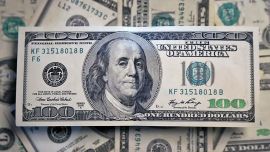Eighteen banks in Argentina were searched on Thursday nationwide as part of investigation into alleged flight of US$400 million through import manoeuvres.
Some 157 companies reported by the authorities “simulated import transactions, did not import anything and transferred US$400 million abroad," said director of the DGA Customs Office, Guillermo Michel, during a raid in Central Buenos Aires.
The operations under investigation took place between 2020 and 2022 through “illegal manoeuvres to get dollars out of the financial system” and transfer them to the United States, the official specified.
The searches by Customs and the Laundering Division of the Federal Police took place in Buenos Aires, Rosario, Córdoba and Bahía Blanca, with banks, accounting firms and financial companies involved.
Argentine authorities often raid illegal "cuevas" or bureaux de change from time to time in Central Buenos Aires, which trade with the informal dollar, demanded by local and tourists alike. On Thursday, the unofficial parallel so-called “blue dollar" had a rate of 843 pesos per greenback, a gap of over 130 percent compared to the official exchange rate.
Just two weeks out from the first round of the presidential election, the rates of financial dollars used by companies to obtain foreign currency continue to rise as turbulence reins in the exchange markets.
In the aftermath of the August 13 PASO primaries, the government ordered a devaluation of the peso which took it to 365 per dollar at the official rate. Outsider libertarian Javier Milei was the most voted for candidate, taking 29.8 percent of the votes.
After the devaluation, ruling coalition presidential candidate, Economy Minister Sergio Massa, ordered a series of bonus payments, cash handouts and tax relief measures for small companies, wage-earners, pensioners and those claiming benefits.
The opposition has criticised those moves, saying they harm the country’s fiscal outlook.
Amid prolonged currency restrictions and a significant shortage of reserves in the Central Bank, which lead the Government periodically to establish exchange rates above the official one for production sectors in order to get dollars by way of taxes. Economists link this new drop in the currency to an excessive injection of pesos into the market.
– TIMES/AFP




















Comments